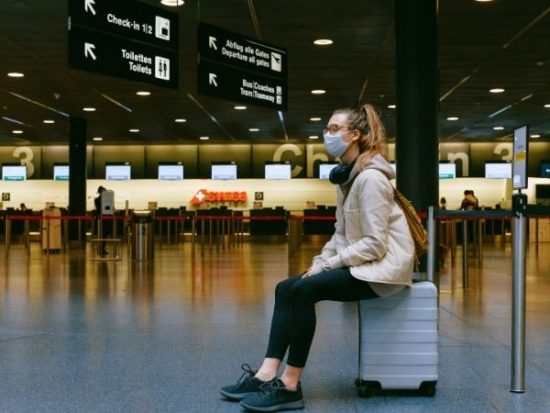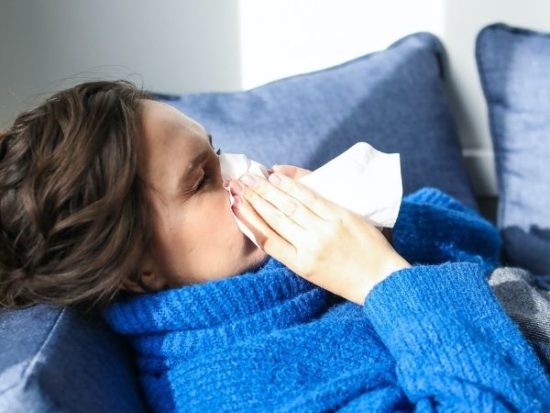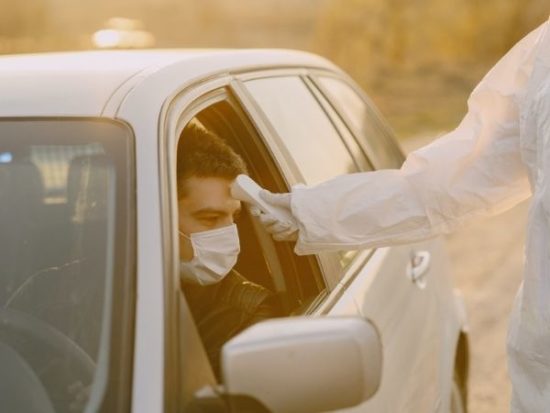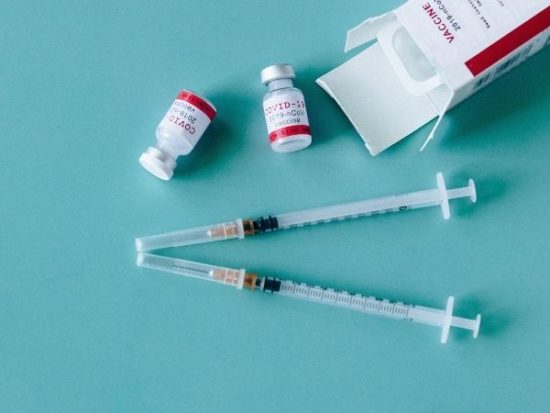Can You Get COVID More Than Once?

A year into the pandemic and the coronavirus continues to exhibit strange properties.
Early 2020, the world learned of this dire public health threat. In response, countries have mandated nationwide lockdowns and social distancing guidelines.
Until now, scientists have much to learn about the novel coronavirus. Meanwhile, the virus develops into more infectious variants.
Worse, cases of reinfection have been detected. Unlike other illnesses, recovering from COVID-19 does not ensure immunity.
Getting COVID
In 2019, the novel coronavirus caused a disease outbreak in China.
This became known as Severe Acute Respiratory Syndrome Coronavirus 2 (SARS-CoV-2), causing the disease known as COVID-19 disease.
Then in March 2020, the World Health Organization declared this outbreak as a pandemic.
Public health organizations around the world have closely monitored the virus ever since. Meanwhile, scientists are tirelessly searching for a potential cure or vaccine.
Symptoms and Treatment
People can carry the virus for 2-14 days without exhibiting symptoms.
Healthy people could be asymptomatic carriers and unintentionally infect others. Consequently, people have been wearing masks and social distancing outdoors.
This infectious disease manifests into a variety of mild, moderate, and severe symptoms. The common ones from coronavirus disease are tiredness, fever, and cough.
Types of Symptoms
Mild COVID-19 symptoms last for 7-10 days and may include:
- Loss of taste or smell
- Sadness
- Fever
- Sore Throat
- Muscle Aches
- Headache
The virus could cause inflammation in the lower part of the lungs, causing moderate COVID-19 symptoms:
- Coughing for hours
- Body temperature above 37.8 °C
- Dry mouth
- Being bedridden due to exhaustion
- Feeling miserable or weepy
If the inflammation spreads further into the lungs, severe coronavirus symptoms could show up:
- Breathlessness
- Chest or back pain when breathing
- Inability to speak normally
- High temperature
- Rapid heartbeat
- Quick and shallow breathing
- Sickly appearance
- Low blood pressure
Eventually, a person may become unable to breathe without a ventilator. This causes sepsis and multiple organ failure, leading to a coronavirus death.
People with underlying medical conditions have a higher risk of experiencing severe symptoms. Also, the elderly are more vulnerable to COVID-19.
Still, healthy individuals must remain vigilant during the pandemic. They aren’t completely safe from the worst COVID-19 symptoms, and they might infect others without knowing.
There are no cures yet for the novel coronavirus disease, but we now have multiple vaccines. However, mutations might affect their effectiveness, so scientists continue monitoring the virus.
Related Articles
What To Know About Cryptocurrency Trading
How to Relax With CBD
Best Face Masks Review On Amazon
Why Is Treating COVID-19 So Difficult?
Coronaviruses typically mutate, including the novel SARS-CoV-2.
So far, this new strain has developed into other variants. They don’t seem to cause new symptoms, but they’re spread much faster.
As we’ve mentioned, experts are checking if current vaccines will protect against them. Although, some manufacturers like Pfizer claim that their vaccines will likely work.
Another challenge in treating coronavirus is avoiding potential harm to human cells. Worse, hospitals around the world struggle to deal with COVID’s high infectivity.
Can You Get COVID Twice?
On March 26, 2020, a 33-year-old male from Hong Kong had the coronavirus months after his initial infection.
Dr. Frank Esper of Cleveland Clinic said it’s the first case of true reinfection. Since then, more people have tested positive for COVID despite their previous infection.
Current rapid tests cannot verify suspected reinfections. Experts used genome sequencing and patient histories to confirm these cases, but they take a significant amount of time.
Health departments worldwide must adopt a long-term unified approach in dealing with the novel coronavirus. Moreover, they’re currently developing ways to detect reinfections.
Can You Have COVID Without A Fever?
As we’ve mentioned, people could be asymptomatic SARS-CoV-2 carriers.
An April 2020 study reported that only 55% of folks with COVID-19 develop a fever. Other symptoms like a lack of taste or smell were more prevalent.
This is why we should follow public health guidelines. Social distancing and wearing masks minimize the risk of coronavirus infection for you and everyone else.
Can You Be Immune To COVID?
A study from the New England Journal For Medicine reported that COVID-19 immunity could last up to 6 months.
A previously infected person might develop an immune response temporarily. However, how much protection they have against reinfection still unknown.
Of course, you should get the new COVID vaccines for the best protection. Pfizer’s two-dose shot is 95% effective, while Moderna’s vaccine stands at 94.5%.
Should You Get Vaccinated?
Now that we have COVID vaccines, we should all take them.
Vaccinations are meant to provide herd immunity against a certain disease. Usually, 70% of a population must be inoculated to defend against an illness adequately.
What’s more, experts say we need to inoculate a larger majority against the novel coronavirus. This emphasizes the importance of COVID-19 vaccinations.
It’s unclear if the vaccine will offer lasting protection for our immune systems. Scientists warn that people should continue COVID guidelines despite being vaccinated.
Nevertheless, getting a COVID-19 vaccine is highly recommended for public health.
Healthy Tips For Treating COVID At Home
If you suspect that you or someone at home has minor COVID-19 symptoms, please stay indoors for 14 days.
While isolating, minimize physical contact to avoid infecting others. Use separate items from non-infected occupants as much as possible.
Regularly touched items should be disinfected often to eliminate traces of coronavirus. Keep wearing a face mask, and avoid letting visitors in the home.
Eventually, the signs of coronavirus disease should dissipate. Then, you may resume outdoor activities while closely adhering to COVID-19 guidelines.
If you’re caring for someone infected at home, please apply the previous tips for the patient. Wear gloves when washing dishes and laundry, then wash your hands.
Caring for someone with COVID-19 is stressful, so properly care for yourself. Remember that you need to be healthy enough to continue taking care of others.
If symptoms persist or exacerbate during the COVID-19 home treatment, please request medical assistance immediately.
Avoid Coronavirus Misinformation
Let’s face it. The pandemic extremely stresses most folks.
Countries have mandated lockdowns and guidelines that have cost people their livelihoods and businesses. Worse, there’s no apparent end to the pandemic yet. The coronavirus has mutated into more infectious variants, causing some nations to tighten previous restrictions further. Hospitals are struggling to keep up with the continuously rising number of cases.
Fearful and uncertain of the future, people yearn for any explanation for the coronavirus pandemic.
Unfortunately, mischievous individuals prey on public fear by posting misinformation on the internet.
They post hoaxes and theories that feed on the public’s fears and biases. Scammers could easily make them convincing nowadays. For example, they could include stock photos from Getty Images to imitate legitimate sources.
Then, they will ignore COVID guidelines, leading to more cases and deaths. This is why people must avoid coronavirus misinformation no matter what.
Only subscribe to legitimate online sources for your COVID-19 updates. Make sure your information comes from real medical professionals posting on reputable websites.
Summary
You could contract coronavirus disease more than once. Case reports from around the world have documented these instances.
However, you could avoid getting COVID-19 by following public health guidelines. Wear a mask and maintain a distance from others outside your home.
If you get minor symptoms, temporarily stay at home until the symptoms are gone. Seek medical help immediately if symptoms remain or exacerbate.
It’s best to take the COVID vaccines once they’re available. Once everyone is inoculated, we can sooner get society back to normal.
While vaccinations are underway, protect yourself and others by following public health guidelines.




